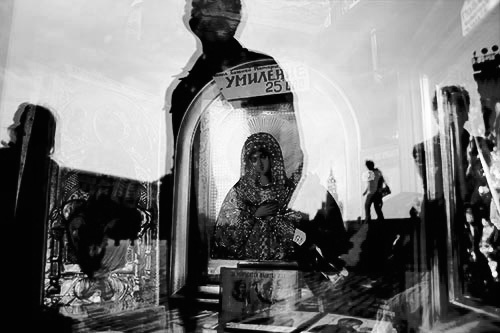MOSCOW — Russia is increasingly deporting U.S. citizens on its soil in recent years. Americans living in Russia have also seen a sharp spike in the number of residence permits that have been revoked since the start of this year, signaling a deterioration in relations between the two former Cold War foes.
Russian authorities say they're enforcing immigration laws and urge U.S. citizens not to "demonize Russia." But a look at the numbers demonstrates otherwise.
Russian authorities sent back just one U.S. citizen in 2012. That number gradually grew since then to 57 Americans last year. In the first half of this year, they expelled 18 Americans.
The data on residency permits reveals a more complex picture. Although the number of revoked permits was 19 in 2012, that number plunged to 8 last year. But just the first half of this year saw the number jump up to 25.
The interior ministry says that these Americans had violated the conditions of their stay by remaining in the country for more than six months beyond their permit's expiry date or by infringing labor laws. But U.S. diplomats, Russian human rights activists and many political analysts view the data as a sign of worsening relations between the two countries.

More transparency needed in Moscow? — Photo: Zabara Alexander
One deportee, Jennifer Gaspar, was separated from her husband and daughter in 2014, after legally residing in Saint Petersburg for a decade. Russian migration officials annulled Gaspar's residency, calling her a threat to national security on the basis of a certificate issued by the Federal Security Services, which described her as favoring "forcible change of the constitutional order."
Gaspar says that she is being expelled from Russia because her husband, Ivan Pavlov, is a human rights attorney. Pavlov heads "Team 29," a group of journalists and young lawyers advocating for government transparency.
Dr. Mikhail Troitskiy, an assistant professor at the Moscow State Institute of International Relations, is among those who say politics is definitely to blame for the crackdown on U.S. citizens.
Pavel Chikov, a human rights activist, echoes the belief.
"The United States and Russia have a complex relationship that has been around for a long time, so the trends in migration are difficult to analyze," he says. "But they are there nonetheless."
*This is an abbreviated version of the original article.





